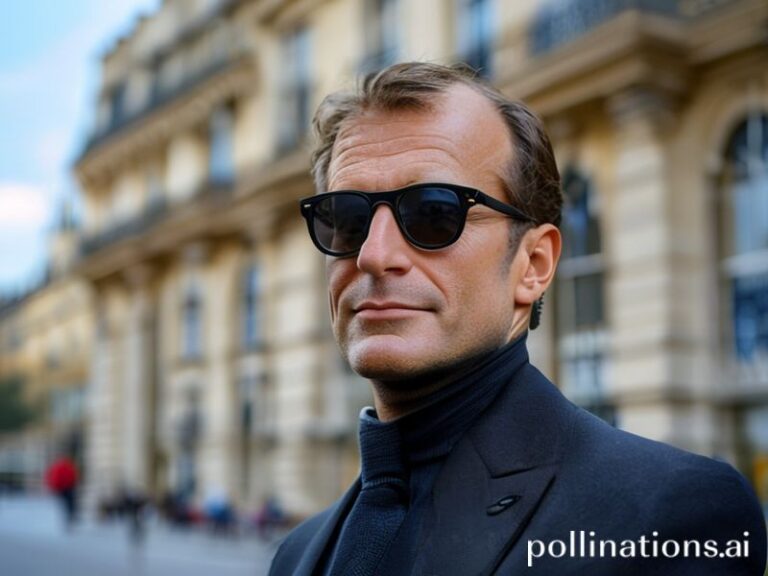Gleb Savchenko: How One Man’s Abs Became a Geopolitical Weapon
Gleb Savchenko, the Human Metaphor We Never Ordered
By Dave’s Locker Foreign Desk
Somewhere between the Danube and the Dolby Theatre, Gleb Savchenko has spent two decades proving that a six-pack can double as a diplomatic passport. The Russian-born, U.S-naturalised ballroom dancer has cha-cha-cha’d from Moscow’s parquet floors to the fluorescent purgatory of Dancing with the Stars, collecting passports, ex-wives, and approximately 4.3 million Instagram followers the way lesser mortals collect parking tickets. In an era when borders snap shut faster than a suburban garage door, Savchenko’s career reads like a geopolitical fever dream narrated by a tipsy UN interpreter: fluid citizenship, export-grade charisma, and a willingness to sell anything—abs, sincerity, or a spray-tan—so long as the music keeps playing.
The international significance? Start with the obvious: the man is a living sanctions loophole. While oligarchs scramble to reroute super-yachts through Montenegro, Savchenko simply books another season on a Disney-owned franchise and—voilà—continues to earn American dollars in plain sight. His torso alone has done more for Russian soft power than the entire Bolshoi, yet he remains as untouchable as a diplomat with a parking permit. If that doesn’t make you question the rules-based order, you haven’t been reading the footnotes.
Then there’s the soft-power algebra. Russia exports him as proof that artistic brilliance can survive emigration; the U.S. imports him as proof that its talent pipeline still beats the global competition; and Australia—yes, he triumphed on their version too—uses him to reassure itself that it can still poach celebrities other than Hemsworths. Three continents, three self-soothing narratives, one man who looks equally at home in Swarovski crystals or a Calvin Klein waistband. The United Nations should study him under laboratory lighting; instead, it’s busy drafting strongly worded press releases nobody reads.
Savchenko’s personal timeline is equally instructive for students of late-stage capitalism. He debuted on the BBC’s Strictly at 21, fresh enough to believe that artistry and commerce could coexist without one devouring the other. A decade later, he was hawking subscription fitness apps between commercial breaks on ABC, a progression that mirrors humanity’s own arc from idealism to data-mined despair. Along the way he married and divorced fellow dancer Elena Samodanova—twice—proving that even the most synchronized couples eventually step on each other’s toes when the cameras stop rolling. The split played out across tabloids from Moscow to Malibu, offering the planet a rare moment of unity: everyone loves a marital car crash in 4K.
But perhaps Savchenko’s greatest service to global affairs is pedagogical. Watch any of his routines and you’ll witness a masterclass in plausible deniability: hips swivel with such conviction that you forget the choreography was focus-grouped by an intern named Madison. It’s the same sleight-of-hand your government uses when rebranding a troop surge as a “stability deployment.” Gleb just does it with better lighting and fewer casualties—unless you count the self-esteem of every viewer who attempts his 30-day ab challenge and pulls something in Week 1.
And so the world spins, propelled by disco balls and desperation. Savchenko keeps booking flights, keeps spray-tanning, keeps smiling that cryptic smile that says, “I know the music will stop someday, but darling, not on my eight-count.” In that sense he is the perfect envoy for our jittery age: perpetually in motion, legally stateless, emotionally unreadable, and utterly, irresistibly watchable. If civilisation collapses tomorrow, archeologists will unearth a glitter-covered costume and conclude we worshipped a minor deity who promised absolution through abdominal definition. They won’t be entirely wrong.
Conclusion? Savchenko is not merely a dancer; he is the canary in our collective coal mine—except the canary has better deltoids and a sponsorship deal with a meal-kit service. Long after the last mirrorball shatters, his career will linger as documentary evidence that when nations ran out of ideas, they settled for really good footwork. And honestly, given the alternatives, who can blame them?







